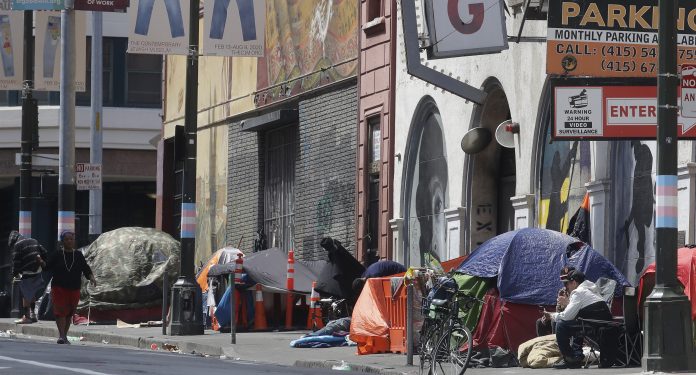() To confront an increase in opioid-related overdose deaths in California, one state legislator is working to advance a bill that would provide access to safe drug consumption sites in multiple cities across the state.
Senate Bill 57, authored by Sen. Scott Wiener, D-San Francisco, would authorize the City and County of San Francisco, the City and County of Los Angeles and the City of Oakland to develop overdose prevention programs via consumption sites for people to use drugs under supervision from medical personnel.
The programs would include access to a “hygienic space supervised by trained staff” where people could consume pre-obtained drugs and provide access to program staff who would be trained to administer an “opioid antagonist” in an emergency.
The sites would also offer substance use disorder services and referrals to obtain overdose reversal medications.
The bill was initially introduced in December 2020 and has been amended several times. It was passed by the Assembly Health Committee last week and will now make its way to the Assembly floor for a full vote. If the Assembly approves, it will return to the Senate for approval before heading to Gov. Gavin Newsom’s desk.
“The time has come for an all-hands-on-deck approach to California’s overdose death crisis, and safe consumption sites are a proven strategy to save lives,” Wiener said in a statement.
“Public health interventions to address this crisis exist, and they are working well in other countries,” he added. “We can’t keep saying no to safe consumption sites and hope that somehow our challenges around addiction, overdoses and mental health will just go away.”
The bill comes as California sees a rise in opioid-related overdose deaths. According to data from the state’s Overdose Surveillance Dashboard, the state saw more than 5,500 deaths related to opioid overdose in 2020 – almost a 70% increase from 2019.
The rate of overdose deaths has increased significantly in the Bay Area, rising 170% between 2018 and 2019 in San Francisco, according to Wiener.
Wiener wrote in a bill analysis that the rates continued to climb during the pandemic, with San Francisco seeing “nearly four times as many overdose deaths as COVID-19 deaths” in 2020.
Los Angeles County also saw an increase in overdose deaths during the pandemic, according to a report released earlier this month by Substance Abuse Prevention and Control.
The report found that LA County saw a 48% increase in accidental overdose deaths during the first five months of the pandemic (March-July 2020) compared to the same time frame in 2019.
It also found that over the last decade, the county has seen a “steady” increase in accidental overdose deaths with “notable increases” in 2018 due to fentanyl and methamphetamine-related deaths.
Under existing federal law, it is a felony to operate a space for the purpose of distributing or using any controlled substance. But several entities, including the American Medical Association, recommend the use of facilities where people can use drugs under supervision to reduce the number of overdose deaths.
The bill has drawn opposition from individuals and groups, including the California Narcotic Officer’s Association. The CNOA said the bill “alarmingly concedes the inevitable and immutable nature of drug addiction and abuse” and would “normalize substance abuse.”
But supporters of Wiener’s bill say the legalization of overdose prevention programs has proven effective in other countries to reduce health and safety issues related to drug use.
According to the California Society of Addiction Medicine, who are supporters of SB 57, safe injection sites across Europe, Australia and Canada have been a “cost effective” intervention practice, and people using these programs are more likely to enter addiction treatment.
“We are in the midst of a devastating overdose crisis, and are losing Californians every day to overdose,” Kevin Rogers, interim CEO of San Francisco AIDS Foundation, said in a statement in support of SB 57. “We cannot afford to slow or stall the establishment of these evidence-based and life-saving services.”
According to a spokesperson from Wiener’s office, the funding to set up the overdose prevention programs in the Bay Area and Los Angeles would come from local entities, not from the state.
If passed, SB 57 would enact a five-year pilot program in the participating cities with a sunset date of January 1, 2028.

